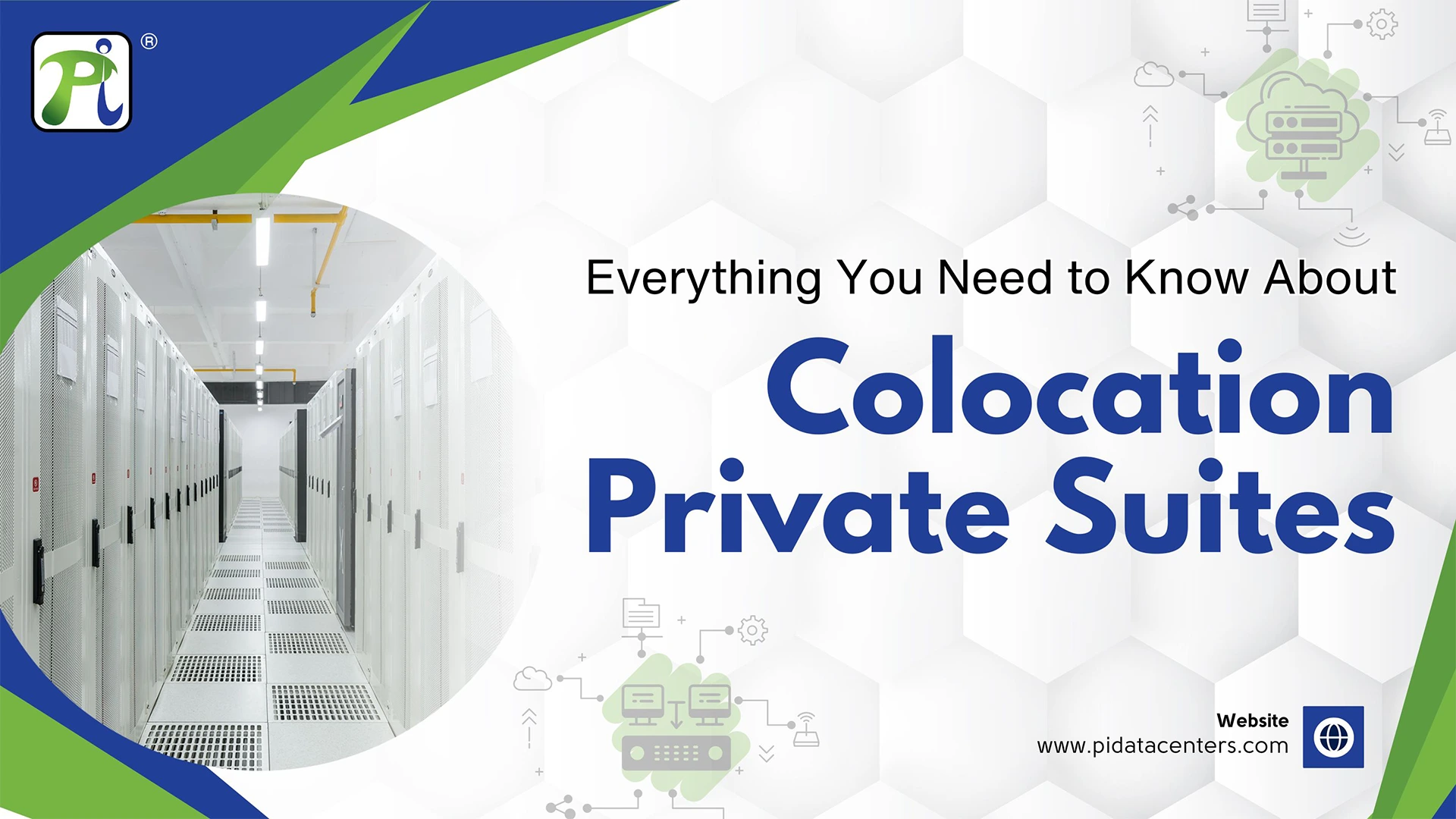We Will Get Back To You As Soon As Possible


In the realm of data center colocation, businesses rent space to house their IT equipment. There are several options available under colocation that a business can leverage based on its business type and budget, and colocation private suites are one of them. They cater to companies seeking the utmost control, security, and flexibility for their critical IT infrastructure.
Colocation private suites are dedicated, private areas within a data center facility leased exclusively to a single organization. These suites provide physical separation from other tenants, allowing for enhanced security, privacy, and control over the IT infrastructure. Unlike shared colocation spaces, where multiple tenants share the same area and resources, private suites offer an isolated environment tailored to the client's needs. They provide customizable configurations tailored to the tenant's needs, including power density, cooling systems, and rack layouts. With dedicated resources and advanced security measures, colocation private suites are designed to meet stringent compliance requirements and provide a reliable, scalable environment for mission-critical applications.
These elements make colocation private suites attractive for businesses requiring secure, reliable, and customizable data center environments.
Choose Colocation Private Suites and leverage the benefits of a dedicated, secure, and customizable environment that supports your unique IT and operational needs.
Colocation private suites offer a tailored and secure data center environment, making them an ideal choice for a different business. Here are the key types of entities that should consider utilizing colocation private suites, along with detailed reasons why they might benefit from this advanced infrastructure solution:

Colocation private suites offer distinct advantages over shared colocation environments, particularly for businesses in BFSI (Banking, Financial Services, and Insurance), Legal, Large Enterprises, Governments, and Research Firms. These sectors require robust security, stringent compliance adherence, and customizable infrastructure, all effectively provided by private suites. In BFSI, where data security and regulatory compliance (such as PCI-DSS) are paramount, private suites ensure dedicated, highly secure spaces with exclusive access controls and advanced surveillance systems, reducing the risk of breaches. Similarly, legal firms handling sensitive client information benefit from the privacy and control over data access afforded by private suites, meeting confidentiality requirements. For large enterprises and governments, private suites offer scalable solutions tailored to their extensive infrastructure needs, providing resource allocation and deployment flexibility. Research firms, reliant on high-performance computing and stringent data management protocols, find private suites ideal for maintaining optimal conditions and ensuring uninterrupted data access. In summary, colocation private suites stand out by offering superior security, compliance support, scalability, and customization options, making them the preferred choice for critical and regulated sectors requiring reliable and controlled data center environments.
We can now comprehend several aspects of Colocation Private Suites; it's also paramount to understand the significant difference in how it's different. Unlike shared or cabinet-based colocation, a private suite offers exclusive, fully enclosed space tailored to a single client's needs. It provides heightened security with dedicated access controls and physical barriers, ensuring maximum privacy and protection for critical infrastructure. Customization options are extensive, allowing businesses to dictate everything from layout and cooling systems to power distribution, facilitating efficient scaling without the constraints of shared environments. These features make colocation private suites ideal for enterprises needing stringent security, regulatory compliance, and extensive control over their IT infrastructure.
Colocation private suites represent a sophisticated solution for businesses seeking a balance between the control of an in-house data center and the benefits of outsourced infrastructure management. With their customizable, secure, and scalable nature, private suites empower organizations to optimize their IT operations, ensuring they remain agile and competitive in today's fast-paced digital landscape. Whether you are a large enterprise with stringent compliance needs or a growing business looking for a reliable and scalable infrastructure solution, colocation private suites offer a compelling option worth considering.
Questions? We're here to help.
©2026 Pi DATACENTERS® Pvt. Ltd. All rights reserved
